
Water softener resin can last 10-20 years, depending on water and resin quality. However, knowing when it’s gone bad is just as crucial as its lifespan.
Here are the 3 telltale signs to watch for:
Keep reading; we’ll dive into these signs in detail and provide expert tips to prolong your resin’s life.
👉How Do I Know if My Water Softener Resin Needs Replacing?
If you’re wondering whether it’s time to replace your water-softener resin beads, watch out for these telltale signs:
❌You Are Not Getting Soft Water
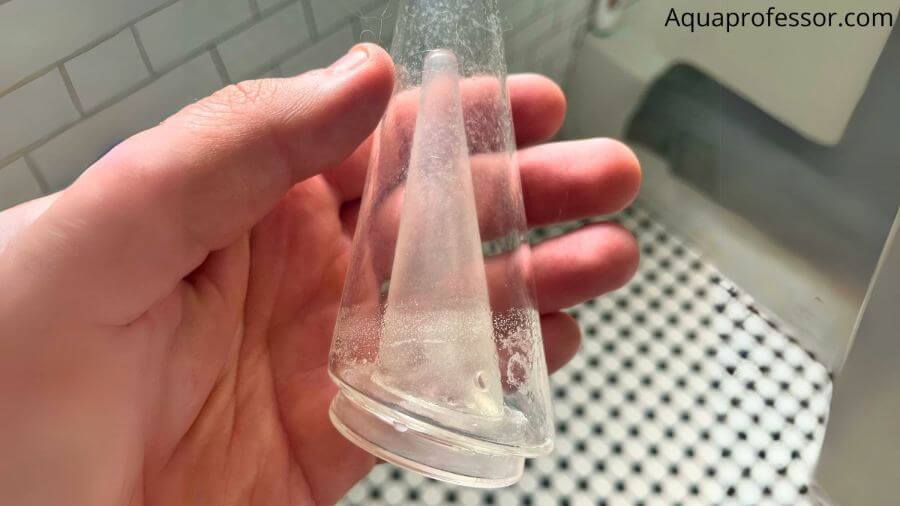
The resin bed’s primary function is to remove hardness minerals such as calcium, magnesium, and sodium ions from your water.
But it can’t perform this task efficiently when it becomes depleted or damaged, resulting in hard water issues like:
So, if you’re suddenly experiencing these issues despite having a softener, check your resin bed for damage (more on this later).
💧Your Water Pressure Has Gone Down
A gradual decline in water pressure across your household fixtures, like faucets and showers, can signal problems with the resin bed.
The resin bed may become clogged with impurities or mineral buildup like magnesium deposits over time, obstructing water flow through the softener.
🧂Excessive Salt Usage
If you’ve noticed a significant increase in the frequency of salt refills in your water softener, even with consistent household water usage, it’s essential to investigate.
Excessive salt level consumption suggests that your softener may be struggling to regenerate efficiently or adequately remove hardness minerals from your drinking water. This increased salt demand can lead to higher maintenance costs and may necessitate resin replacement.
🍃Air Discharge At The Softener Drain
If you’re hearing air noise from the head unit of the softener and resin coming out of the drain during the REGEN phases, your resin may have gone bad.
You can confirm this by putting your softener into the bypass to see if the air problem is gone.
🟡Yellow Stuff Clogging Appliances
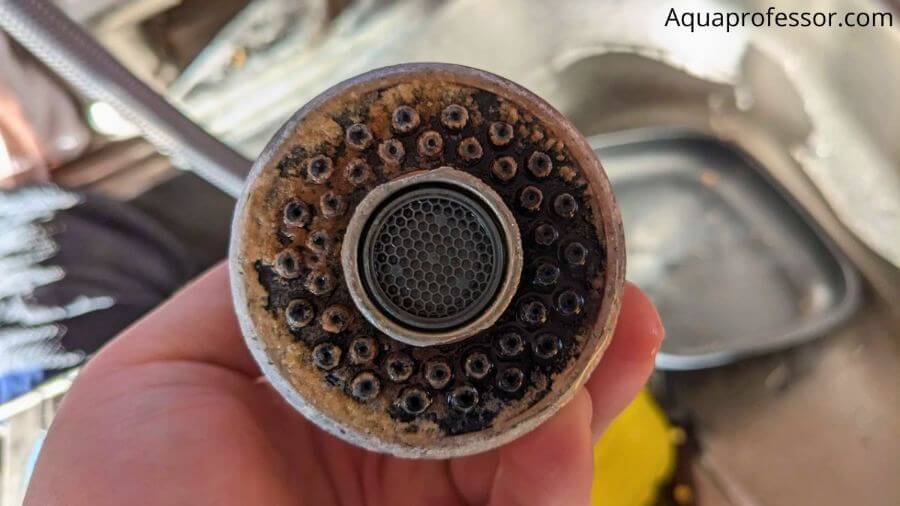
Yellowish deposits or sand-like particles in appliances like your dishwasher or coffee maker can be attributed to resin bed deterioration.
These deposits often comprise resin fragments that have broken away from the resin bed, clogging up appliances and fixtures. This affects the efficiency of your appliances and indicates that the resin bed itself needs replacement.
🙅♂️You Are Seeing Discolored Water With Foul Odor
If you see reddish debris in water with an unusual odor and taste, it can be a sign of a degrading resin bed adding impurities to your water.
Also Read: Is It Safe To Drink Water With Resin In It?
🧪How Do You Test a Water Softener Resin?
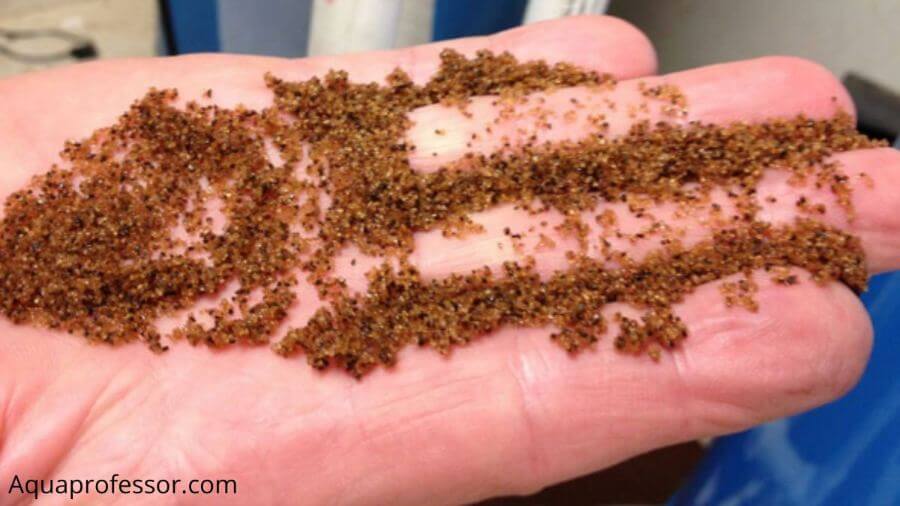
To test a water softener resin bed and confirm whether it’s causing the issues mentioned earlier, follow these important steps:
Also Read: How To Turn Off Water Softener?
🤔What Causes Water Softener Resin to Go Bad?
Water softener resin can degrade over time due to wear and tear, but certain factors can accelerate this degradation:
🔩Excessive Iron In Water
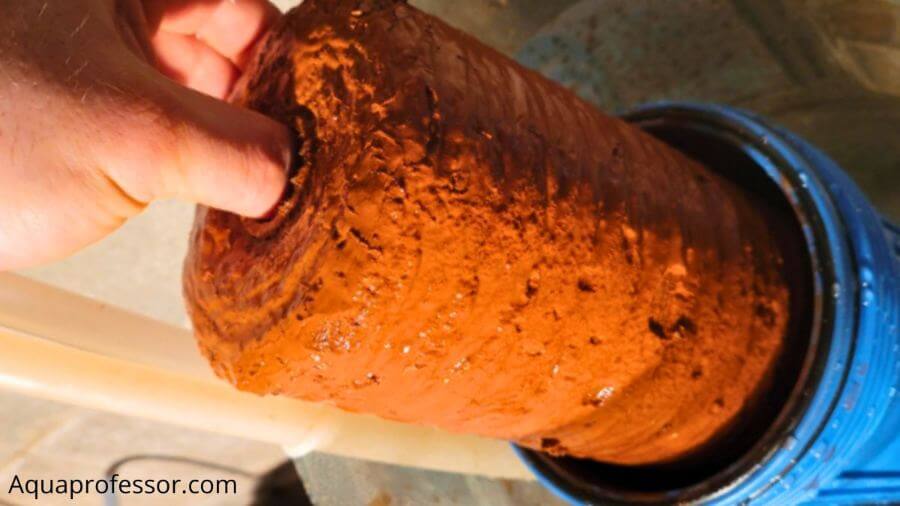
Iron in your water supply is the resin bed’s worst enemy. When iron is present in high concentrations, it can coat the resin beads and create a layer that reduces their ability to exchange hardness ions effectively during the ion exchange process.
Over time, this can lead to decreased water softening efficiency and eventually result in the need for resin replacement.
⚗️Chlorine In Feed Water
Excess chlorine (more than 1 ppm) can harm resin beads. It can lead to oxidation and breakdown of the resin. Chlorine can create “fines,” tiny particles that can clog the resin bed and reduce its capacity to remove hardness mineral content.
A chlorine pre-filter or resin to withstand chlorine exposure can help mitigate this issue.
⏲️Frequent Water Pressure Fluctuations (Water Hammering)
Frequent and sudden changes in water pressure, known as water hammering, can physically stress the resin bed. This stress can cause the resin beads to fracture or break, releasing small resin fragments into your plumbing system.
These fragments can clog appliances and plumbing fixtures, and they’re often responsible for the yellowish deposits seen in some cases.
💁Tips To Increase Water Softener Resin’s Lifespan
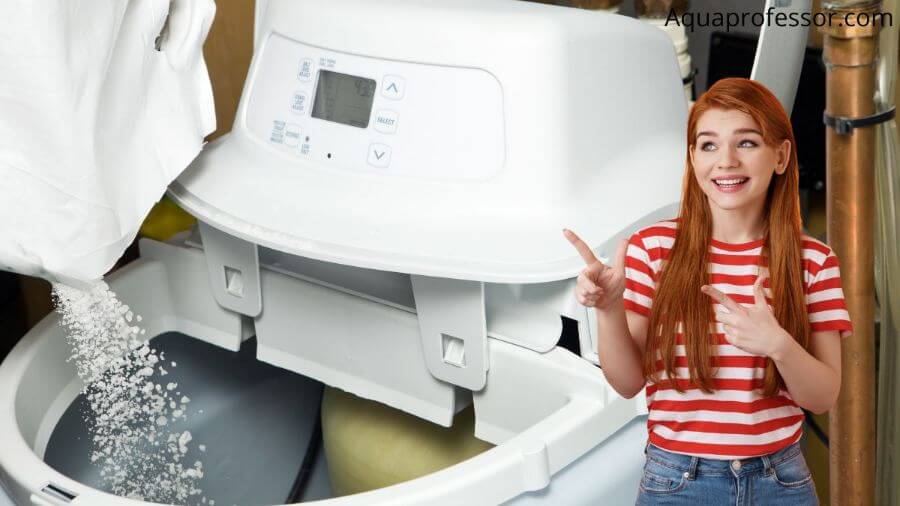
To increase the lifespan of your water softener resin, consider these helpful tips:
💡How To Tell If Water Softener Resin Is Bad FAQs
How to replace resin in a water softener?
To replace resin in a water softener, follow these steps:
1. First, disconnect the softener from the water supply and power source.
2. Next, remove the resin tank’s top cover and distributor tube.
3. Carefully scoop out the old resin and clean the tank.
4. Then, add the new resin and reassemble the softener, ensuring proper sealing.
5. Finally, regenerate the system to flush out any fine particles.
How much does it cost to replace resin in a water softener?
The cost to replace resin in a water softener can vary widely depending on factors like the size of the resin tank, the type of resin used, and labor costs. On average, it can range from $100 to $500 or more for DIY replacement, while professional installation may cost $200 to $800 or higher.
Where to buy water softener resin?
You can buy water softener resin at:
1. Local home improvement stores
2. Plumbing supply shops, or
3. Online retailers like Amazon or Home Depot.
What is the lifespan of resin in a water softener?
The lifespan of resin in a water softener typically ranges from 10 to 20 years. However, water quality, resin type, and maintenance practices can influence its longevity. Regular resin analysis and proper care can help extend its life.
Is water softener resin dangerous?
Water softener resin itself is not inherently dangerous. However, it can be harmful if resin beads are ingested or come into contact with the eyes. Additionally, improper disposal of exhausted resin can lead to environmental pollution. Handling and disposing of resin according to local regulations is essential.
Adarsh is a Health & Nutrition Sciences graduate with expertise in environmental health. He is associated with ventures like Glacier Fresh Filter and Simpure Filter Systems. Through Aqua Professor, he intends to provide helpful information to every home to help them make smarter decisions.
